
 First published in 2002 by the Enitharmon Press 26B Caversham Road London NW5 2DU www.enitharmon.co.uk Distributed in the UK by Central Books 99 Wallis Road London E9 5LN Anthology and foreword Anna Adams 2002 Drawings Neil Pittaway 2002 Poems and prose passages The authors ISBN 1 900564 03 3 British Library Cataloguing-in-Publication Data. A catalogue record for this book is available from the British Library. Typeset in Bembo by Servis Filmsetting Ltd and printed in England by The Cromwell Press
First published in 2002 by the Enitharmon Press 26B Caversham Road London NW5 2DU www.enitharmon.co.uk Distributed in the UK by Central Books 99 Wallis Road London E9 5LN Anthology and foreword Anna Adams 2002 Drawings Neil Pittaway 2002 Poems and prose passages The authors ISBN 1 900564 03 3 British Library Cataloguing-in-Publication Data. A catalogue record for this book is available from the British Library. Typeset in Bembo by Servis Filmsetting Ltd and printed in England by The Cromwell Press
CONTENTS
*
FOREWORD
Noisy, stimulating, deadening, filthy, mysterious, tolerant, racist, crime-ridden, saint-haunted, ancient, up-to-the-minute, oppressive, liberating, crowded, lonely, addictive, and green-and-gardened, London is a microcosm of the World. Most cities are, and poets need cities as well as solitude, for, besides publishers, bookshops, conversation and appreciation, poets need a random selection of humanity, including other poets. City hubbub may well drown the still small voice of the muse for a while, but this durable spirit should get its breath back once it is acclimatised, or else carry home to its native heath or valley much interesting grist for the poetic mill. Even wild Wordsworth lived in London for a spell, and the shy Clare came visiting three times.
Perhaps he should have come more often; he might have been less lonely and less mad. While in London he met poets, saw plays and observed Londoners: and he was not always intimidated by them. Even Hazlitt did not frighten him unduly, and Cary, the translator of Dante, was extremely kind to him. His fellow peasant, Thomas Hardy, left Dorset and lived for several years at Westbourne Park Villas, though he carried his internalised Wessex with him wherever he went. Ted Hughes, that Northerner who took refuge in Devon, came (after Cambridge) to seek his fortune in London. S. S.
Eliot, made London his home. He saw it as old and sordid but wrote about it in a new way, as though all time were simultaneous. His lines are haunted by Dante, Webster, Spenser and Shakespeare, yet they remain new. Chaucer was a native-born Londoner who learned Italian as a child in Lombard Street. He then travelled abroad, learned his art from Boccaccio the Florentine, and brought his poetic skills home to London where he wrote The Canterbury Tales. Samuel Johnson was a provincial, from Lichfield, who became a typical Londoner.
But the truest and most unlikely one was the unworldly William Blake. He was born near Golden Square, in Soho, and he never went north of Barnet or south of Felpham, near the Sussex coast; and he only went there once, but stayed three years. Then he and his wife returned thankfully to their native city. William and Kate Blake were pieces of London: born and bred in the metropolis, or as near as makes no matter, so every poem that William wrote, though it might be about some mythical kingdom, could be regarded as a voice of London. One of the voices: for Keats was born in Finsbury. Though Enfield and Edmonton, where he spent much of his childhood, were not part of London then, they are now, and so is Battersea where Kate Blakes father kept a market-garden; and Hampstead, where Keats wrote his Ode to a Nightingale, is nowadays as much a part of London as is Hammersmith or the Isle of Dogs.
So I have claimed Keatss Nightingale as a London poem; and Keatss Fairyland, where The Cap and Bells is set, is really London, and Shelleys Hell, MacNeices Laredo and Blakes Jerusalem are London too. The advantage of capital cities is that they are not usually engaged in primary production, but live on the surplus created by farming, fishing, forestry and mining that makes civilisation possible. As well as trade, they are involved in the arts, and the evaluation and interpretation of art. A capital city should be the great ideas-exchange of a country, though it may exchange so many commodities that it can become a noisy knot of confused fashions rather than truths. Nevertheless poets need these places, and many poets are entirely urban, as Blake was. But in his day London was smaller.
It was small enough for him to walk right out of it and find somewhere that beautiful flower of chalky downlands, the Pasque Flower that adorns the title-page of his first prophetic book, The Book of Thel. So Blake should not be thought of as being hemmed in by streets, though he lived in several: Green Street, Broad Street, Poland Street, South Molton Street and Fountains Court; and he would have walked along most of the old throughfares that survive today. Yet his London was not our London. He saw it as a fallen, suffering and materialised Jerusalem, a travesty of the heavenly city that he thought humanity ought to inhabit. It would obviously be impossible to include the whole of Blakes great psychodrama however many street-names it may contain in this small anthology, so I have contented myself with extracts, and with using a few of Blakes mighty lines as epigraphs for each of my twelve sections. I hope that by using Jerusalem in this way I dont seem to belittle it; I intend, by tantalising people with fragments, to lead them to read the whole of Blakes hundred pages.
Also, I like to think that the extracts and fragments will wander through my books pages like glimpses of the spirits of young William and Kate, as Los and Enitharmon, going for their day-long, thirty-mile walks round the environs of the city which has, in two hundred years, spread like a splash of spilt coffee over the map of the Thames basin. In their day Green Lanes were green, Wood Green was wooded, Herne Hill may have had a heronry, Camberwell was a village that gave its name to a butterfly, Primrose Hill and St Johns Wood must have contained both primroses and woods, and Old Oak Common Lane was a truthful description of the road it named. In those days the North Circular Road and the M25 were horrors undreamed of, as were the skeins of metal railway tracks and the huge, sooty mainline stations north of the Marylebone Road, which we have begun to feel both fond and proud of since we have cleaned them up. Marylebone was once an area of pleasure-gardens. Saint Mary by the Bourne was the church of the Manor of Tyburn, named after the boundary brook that flowed through North-west London. The name of Tyburn today makes us remember the gallows that stood where mournful, ever-weeping Oxford Street, along which condemned felons passed to execution, met the Edgware Road.
Somers Town, where Blakes contemporary, Mary Wollstonecraft, went to live as a single parent with her little daughter Fanny, was a village outside London, and the Lambeth where William Blake saw his vision of a world in a grain of sand still had much that was rural about it. There William and Kate lived in Hercules Buildings where, he said, he had a whole house to roam in. There was also a garden, with a grapevine that was trained and pruned by Kate, the gardeners daughter; and the young couple used to play at Adam and Eve there. Years later William wrote: There is a Grain of Sand in Lambeth that Satan cannot find Nor can his Watch Fiends find it: tis translucent and has many Angles But he who finds it will find Oothoons palace; for within Opening into Beulah every Angle is a lovely heaven. Blake saw eternity in everything and understood that the imagination was the true reality. He saw Londoners deluded by materalism, as they still are today.
He saw London, blind and age-bent, begging through the streets Of Babylon, led by a child; The corner of Broad Street weeps; Poland Street languishes: To Great Queen Street and Lincolns Inn all is distress and woe. The night falls thick Indeed it did, for the Industrial Revolution was upon us. In my youth too the night fell thick, but for a different reason: the Second World War, with blackout and from time to time storms of bombs. Today it seems like a dream to remember the sirens, the imperturbable barrage balloons, the searchlights, throbbing skies, clatter of anti-aircraft fire, the showers of shrapnel striking sparks from paving-stones, and the surreal dormitory Underground. There are half a dozen, at least, air-raid poems of Louis MacNeice that I would have liked to use in the Recent Wars section, for he weathered out the six years in London, and had the courage and presence of mind to write about it while it was still going on. I, as a teenage art student, used to spend some of my leisure exploring, with a friend, the latest bomb damage of 1943 and 1944.
Next page
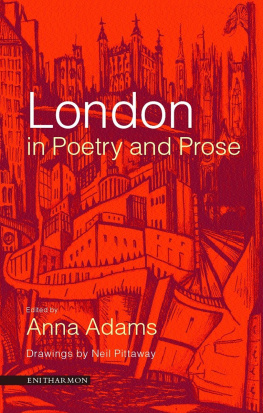
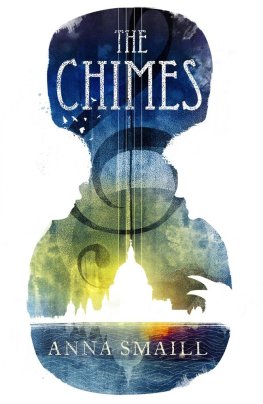

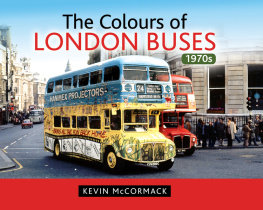
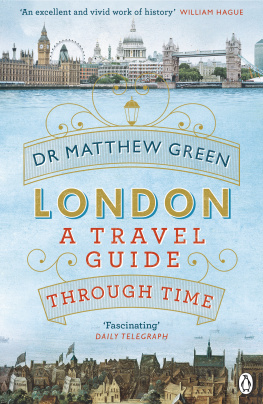
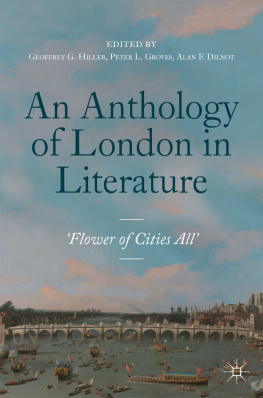
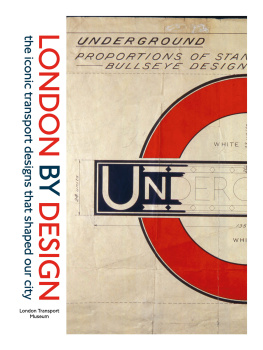
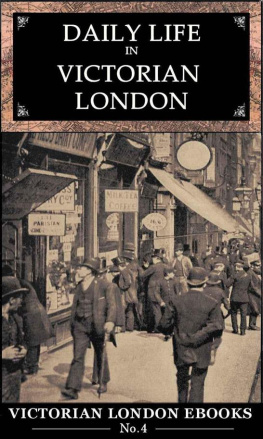
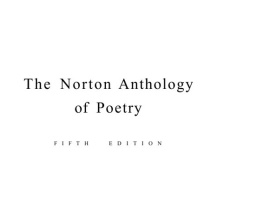

 First published in 2002 by the Enitharmon Press 26B Caversham Road London NW5 2DU www.enitharmon.co.uk Distributed in the UK by Central Books 99 Wallis Road London E9 5LN Anthology and foreword Anna Adams 2002 Drawings Neil Pittaway 2002 Poems and prose passages The authors ISBN 1 900564 03 3 British Library Cataloguing-in-Publication Data. A catalogue record for this book is available from the British Library. Typeset in Bembo by Servis Filmsetting Ltd and printed in England by The Cromwell Press
First published in 2002 by the Enitharmon Press 26B Caversham Road London NW5 2DU www.enitharmon.co.uk Distributed in the UK by Central Books 99 Wallis Road London E9 5LN Anthology and foreword Anna Adams 2002 Drawings Neil Pittaway 2002 Poems and prose passages The authors ISBN 1 900564 03 3 British Library Cataloguing-in-Publication Data. A catalogue record for this book is available from the British Library. Typeset in Bembo by Servis Filmsetting Ltd and printed in England by The Cromwell Press